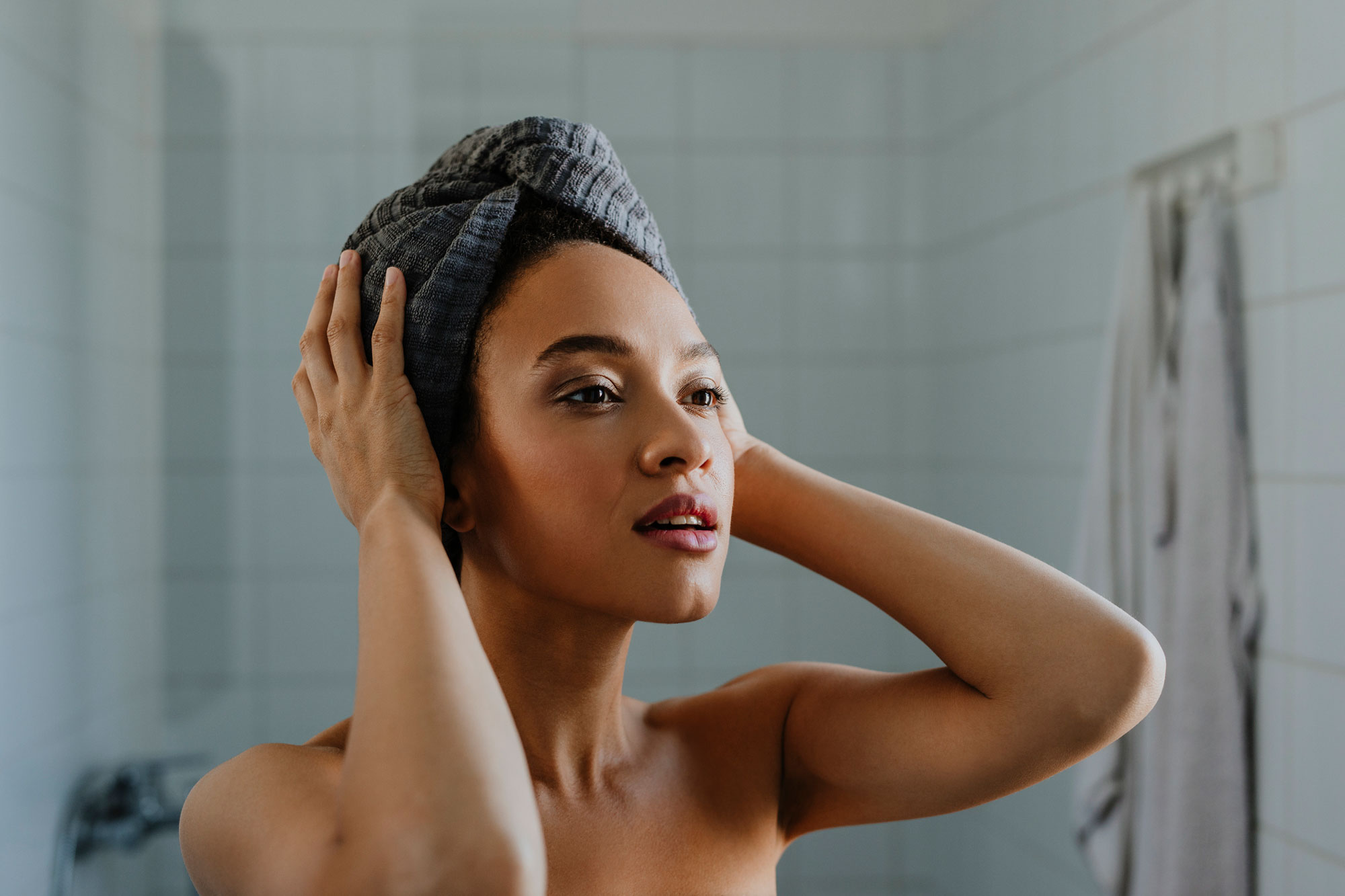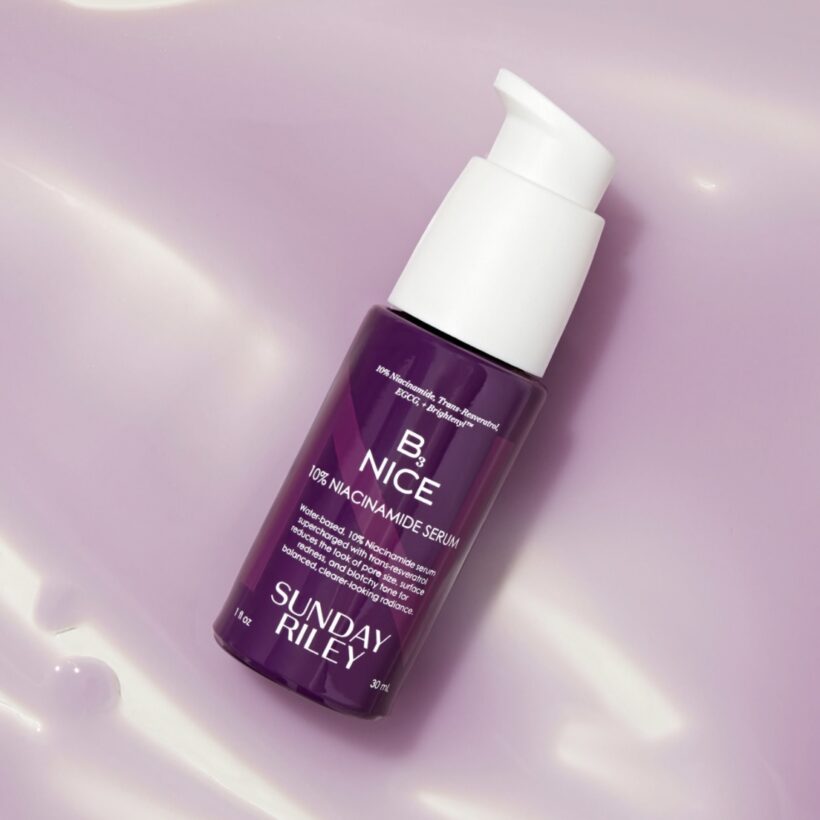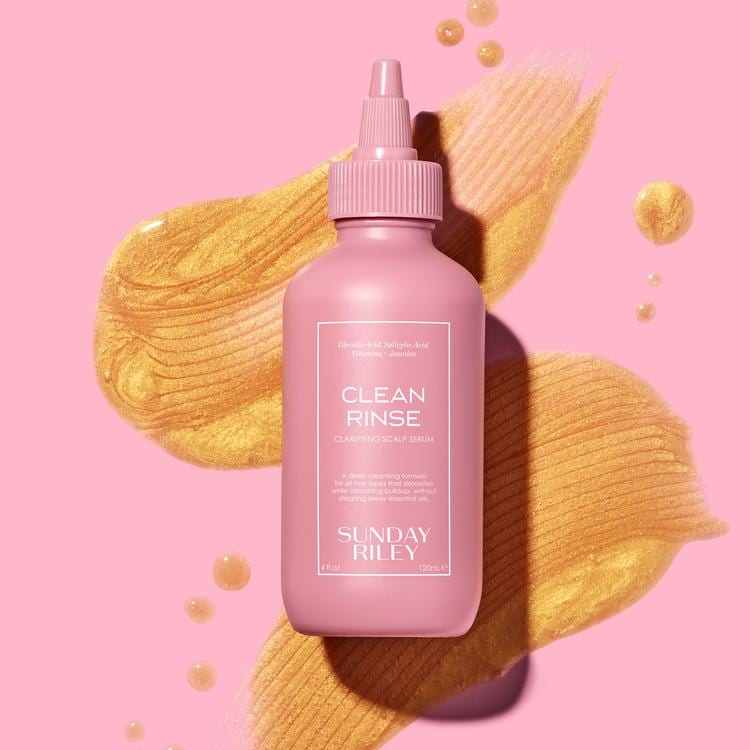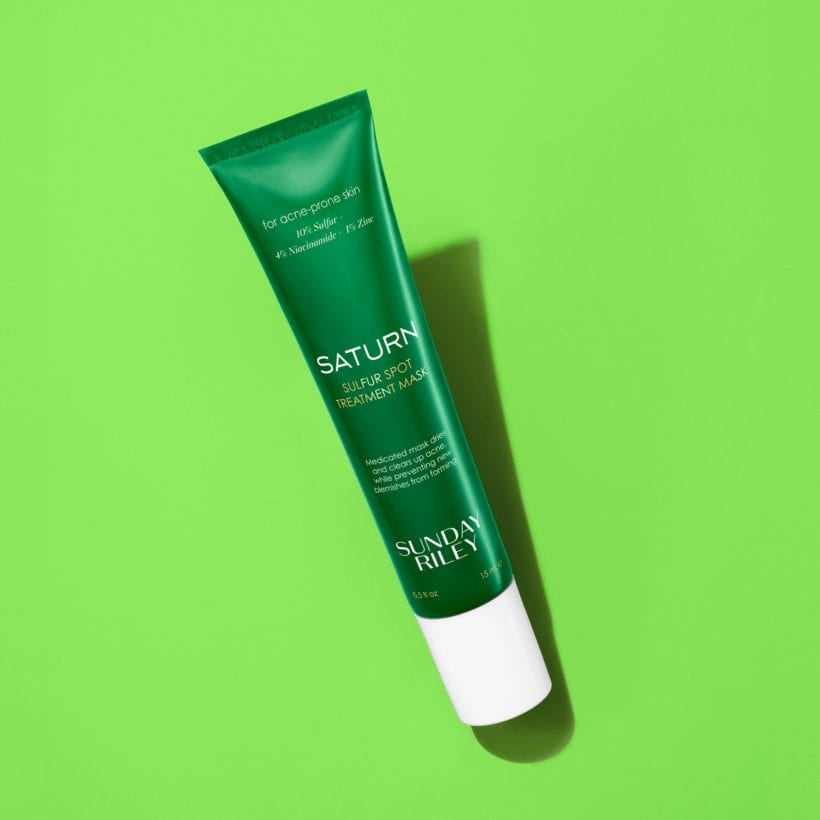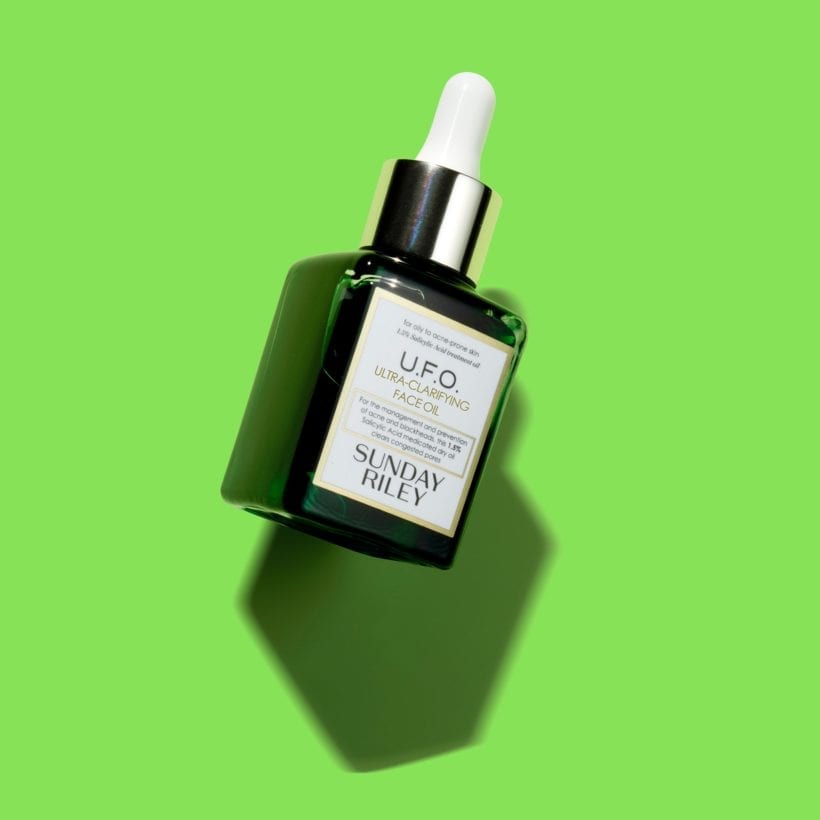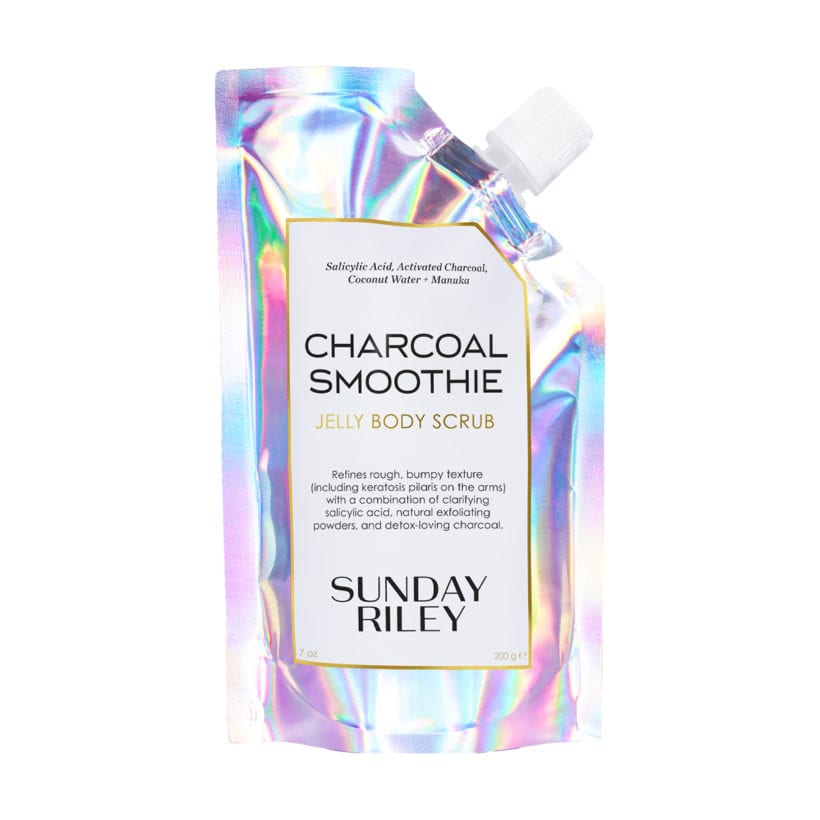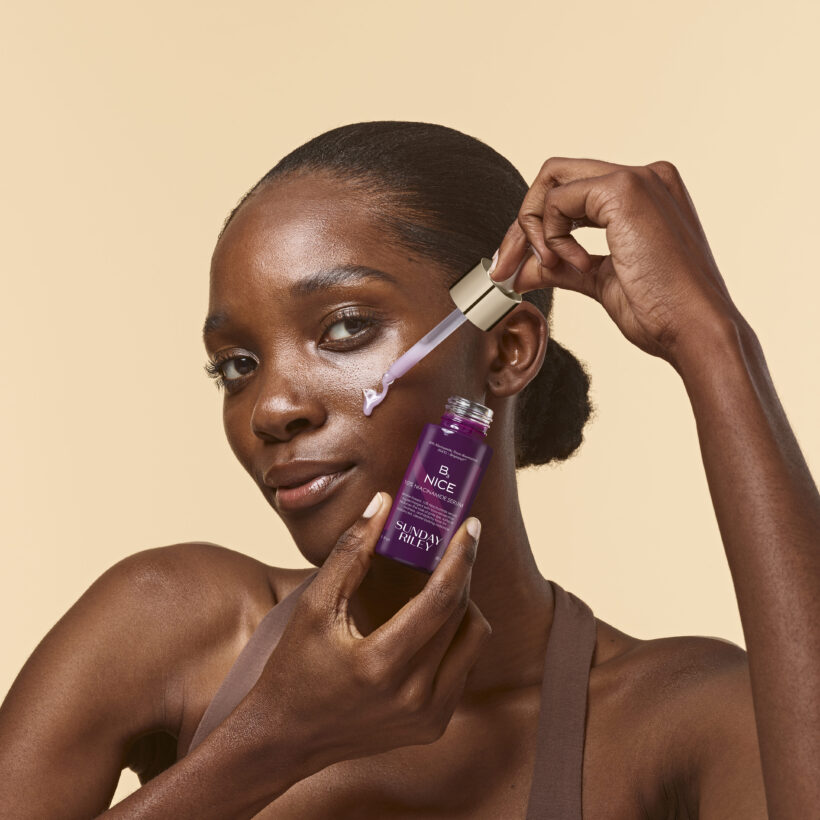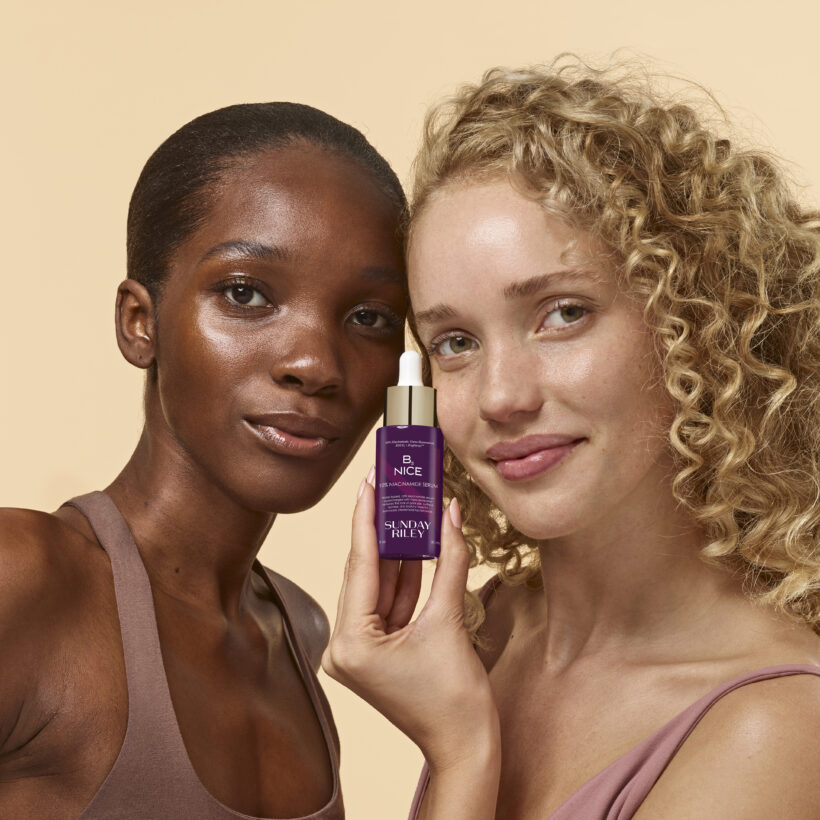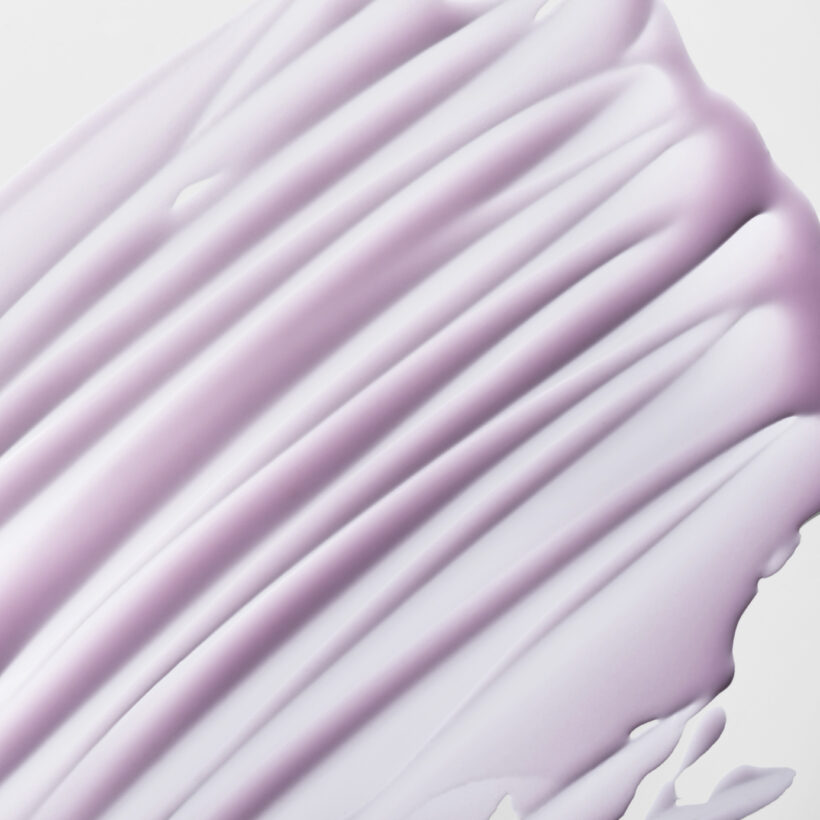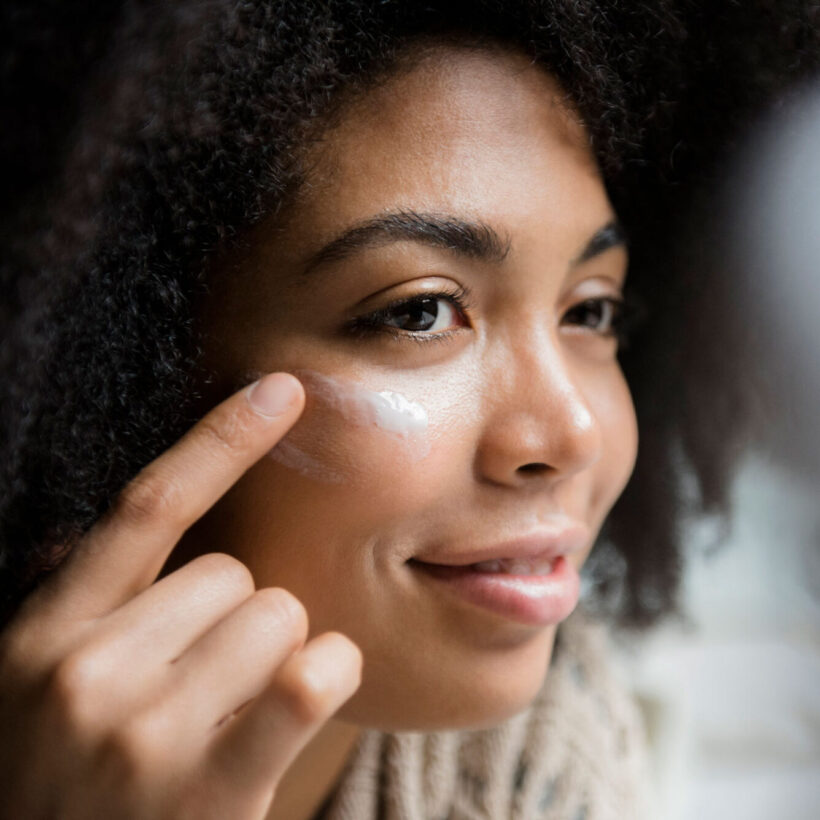Buzzy beauty ingredients come and go, but every now and then we get one with real, skin-changing, staying power. An ingredient like niacinamide, the vitamin B3 derivative universally beloved by dermatologists for its ability to multitask (minimizing the appearance of pores, redness, and hyperpigmentation — seriously, niacinamide does it all) while also being exceedingly gentle on skin.
It’s no wonder niacinamide is the star of Sunday Riley’s latest launch, B3 Nice 10% Niacinamide Serum — an advanced 10% niacinamide serum balanced with trans-resveratrol (a powerful antioxidant), boswellin (a gentle herbal extract that supports skin texture), curcuminoids (turmeric-derived polyphenol compounds that slow signs of premature aging), EGCG (a green tea-derived antioxidant that fights the effects of pollution and oxidative stress), and centella asiatica (a plant-derived way to boost skin’s natural collagen production). With just a few post-cleanse drops once or twice a day, depending on your skincare routine, B3 Nice promises to even out skin tone, minimize the appearance of pores, reduce redness, and deliver an oh-so-elusive radiance.
It’s rare to find an ingredient that can effectively do just one of these things, but niacinamide is so beloved specifically for its unique ability to address a multitude of skin concerns, according to dermatologists. So with all the benefits of niacinamide, which we’ll get deeper into below, why stop at a serum? It’s versatile not just in the range of issues it can address, but in the sheer number of ways you can incorporate it into your beauty routine.
Taylor Worden
is a celebrity esthetician and founder of Taylor Worden Skin in New York.
Rina Allawh, M.D.,
is a board-certified dermatologist at Schweiger Dermatology Group in King of Prussia.
Meet the Experts
To max out on the gentle skin revolution of niacinamide, we asked skincare experts how to incorporate the ingredients into every aspect of your routine. Their answers, from skin health to scalp health, may surprise you.
Niacinamide and hair health
“Because niacinamide is vitamin B3, it helps support hair growth and improves blood circulation,” says Taylor Worden, celebrity esthetician and founder of Taylor Worden Skin in New York. Niacinamide also helps build keratin, so when applied to your scalp, it can help your hair “grow thicker and healthier,” Worden explains.
Niacinamide is also a powerful inflammation fighter (more on that in a moment), which makes it the perfect ingredient to “help reduce a dry, irritated scalp or itchy scalp,” adds Rina Allawh, M.D., board-certified dermatologist at Schweiger Dermatology Group in King of Prussia.
Can it fight acne?
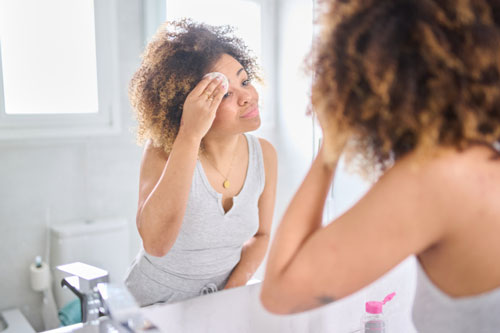
Niacinamide targets blemishes in two ways. First, it can help curb the production of the pore-clogging oil that produces acne in the first place. But niacinamide is also well-known for its anti-inflammatory benefits, giving it a one-two punch in the fight against acne. One study published in the International Journal of Dermatology found that it was as effective at fighting acne as prescription-grade products — with none of the harsh side effects like dryness.
Upgrade your moisturizer
As we head into the dry winter months, you might want to consider upgrading your moisturizer. Yet again, it’s niacinamide to the rescue. “It helps to lock in skin moisture and promote production of key skin lipids and proteins on the top layer of the skin,” says Dr. Allawh.
Don’t forget your body
Niacinamide’s two-fold hydrate and protect effects also makes it the “ideal” ingredient to treat inflammatory skin conditions like eczema on other areas of your body, says Dr. Allawh. Niacinamide has long been revered for its ability to increase ceramide production in your skin, as a ground-breaking study in the British Journal of Dermatology found. (If you picture your skin barrier as a brick wall, ceramides are the mortar — they’re key for keeping skin healthy, locking moisture in, and keeping bacteria and irritants out.) When used in a body scrub or moisturizer, niacinamide can be the key to a head-to-toe glow.
A gentle retinol-alternative
You’ll often spot niacinamide in formulas designed to fight the signs of aging. As a stand-alone ingredient, it holds its own: Niacinamide works by helping to promote collagen production in your skin and “improving skin elasticity by decreasing the cross-linking of collagen molecules in the skin,” explains Dr. Allawh.
But niacinamide also makes a great addition to harsher anti-aging ingredients — the kinds that often come with pesky side effects. “Topical niacinamide may be used in conjunction with topical retinols to minimize any irritating effects,” Dr. Allawh says. If retinol tends to leave your skin red and prone to dryness, look for a formula that includes soothing niacinamide to balance skin out.
Don’t skip the serum
Sometimes, you just can’t beat a good serum when it comes to reaping the most benefits from a topical ingredient. “Believe it or not, the vehicle is in fact important,” Dr. Allawh says. In serum-form, niacinamide is at the top of many dermatologists’ lists of topical ingredients for fighting hyperpigmentation. “Niacinamide works by blocking the main enzyme responsible for the production of skin pigment, also referred to as melanin,” explains Dr. Allawh, which is why you’ll often see it in products that target radiance, brightening, and evening skin tone.
Bottom line: don’t sleep on niacinamide. It may just be the only skincare ingredient you ever need.
We only recommend products we have independently researched, tested, and loved. If you purchase a product found through our links, Sunday Edit may earn an affiliate commission.
